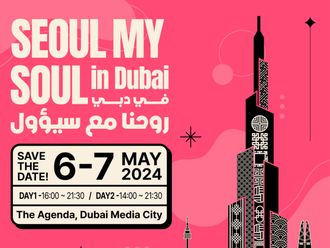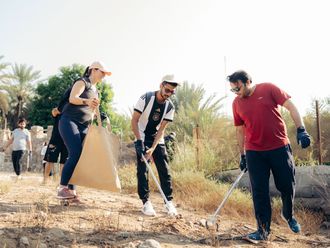Abu Dhabi: The UAE's commitment to freedom of the press has been shown over the last year by the way in which the local media has continued to deal with a wide variety of complex and potentially controversial issues, without intervention by the courts or other authorities, a senior official told Gulf News.
Ebrahim Al Abed, Director-General of the National Media Council (NMC), said the way in which the media exercise the freedom that they have is largely up to them. The National Media Council cannot demand that they do so.
Al Abed stressed the UAE has one of the most technologically and institutionally advanced press systems in the region. "Since its establishment in 2006, the National Media Council has been keen on building up solid relations with the local press through periodical meetings to discuss mutual concerns and problems. So, far this working relationship has proven to be most effective in facilitating local media contribution to national development."
The NMC, the UAE's media regulatory body, came under fire for failure to boost freedom of expression and journalists' access to information, by the UAE's top legislature in March last year. It was also criticised by the Federal National Council (FNC) for its "meagre role in the Emiratisation of the media, dominance of foreign media content and lack of plans to promote the UAE's cultural identity."
Dr Amal Al Qubaisi, a representative from Abu Dhabi, demanded that a law be issued to impose a quota for Emirati journalists and broadcasters and set a time-frame for Emiratising editors, section heads and managers of human resources in all media outlets in the country. Al Abed said the NMC is a regulatory body, not an executive body, and it cannot, therefore, impose any rules or restrictions with regards to Emiratisation on the local media. It can, however, advise and facilitate on the issue. This is being done through the formation of a special committee for Emiratisation in the media sector which draws policies and plans to enhance recruitment of Emiratis in the media organisations and also to organise training programmes with the help of well established international media organisations.
Top priority
The NMC, he added, has succeeded in engaging UAE Universities in this programme. "Shaikh Hamdan Bin Mubarak Al Nahyan, Minister of Public Works and Chairman of the National Media Council, puts this issue as top priority on the agenda of NMC. At the end of the day, it is the media organisations themselves, however, who must decide how they tackle the issue of Emiratisation, although the NMC is always ready to assist, where it is able to do so."
Al Abed reiterated that the NMC respected the editorial policies of all media outlets operating in the country and that it never intervened in their work or nature of their content. The UAE's draft media law, which was approved by the FNC in January 2009, is awaiting approval by President His Highness Shaikh Khalifa Bin Zayed Al Nahyan.
Mohammad Yousuf, chairman of the Journalists Association, said the association was particularly concerned about two points — the possibility of a newspaper's licence being revoked and that the draft law does not specifically rule out the jailing of journalists for carrying out their professional duties.
Adel Mohammad Al Rashed, managing editor, Abu Dhabi, for Emarat Al Youm, said a lack of access to information was a major obstacle facing journalists in doing their job.
While it does not specifically rule out imprisonment for journalists, the new media draft law does not impose it either, and reserves the journalist's right to protect his or her sources.
— With inputs from Abdulla Rasheed, Abu Dhabi Editor










